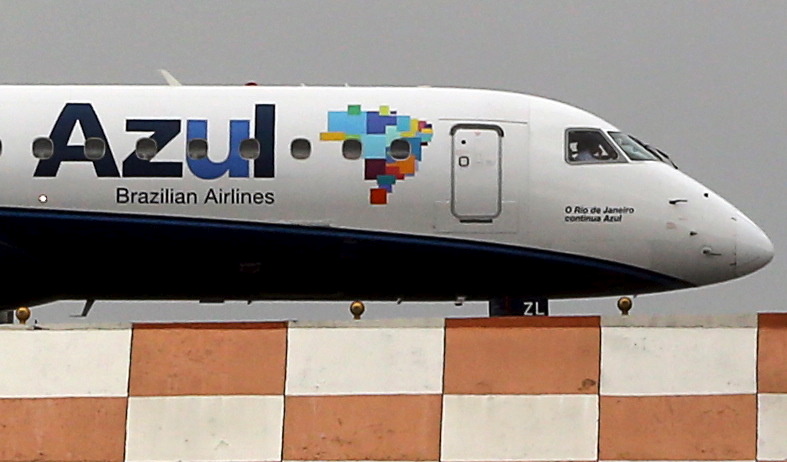By Gabriel Araujo
SAO PAULO (Reuters) -Azul SA confirmed making an offer this month to combine with Chile's LATAM Airlines (OTC:LTMAQ) Group, which is in bankruptcy proceedings, but the Brazilian airline said it had since decided to focus on its own operations.
LATAM shares plunged on Monday by as much as 85% in Santiago trading, before paring losses to around 45%.
Azul shares rose 2.8% in Sao Paulo after saying in a securities filing late on Sunday it would consider potential partnerships only in the future.
The Brazilian airline said its non-binding proposal submitted on Nov. 11 had included around $5 billion in equity financing and was backed by some creditors of LATAM.
However, Azul added that LATAM's valuation in the bankruptcy proceedings had become higher than it found acceptable, citing ongoing uncertainty in the aviation industry amid the COVID-19 pandemic, especially in long-haul markets.
LATAM filed a reorganization plan on Friday in which it proposed an $8.19 billion infusion of capital into the group in a bid to exit its Chapter 11 bankruptcy.
The Chilean company previously said it had received several offers to fund the exit from Chapter 11 bankruptcy, each of which was worth more than $5 billion.
Azul said in its filing that it believed its non-binding proposal would have provided significant increased network growth and generated synergies estimated at more than $4 billion.
It added that "the standalone plan presented by LATAM is, by definition, unable to generate synergies from a combination".
Goldman Sachs (NYSE:GS) analysts warned in a note to clients that any tie-up between the airlines would have held more 60% of Brazil's domestic air travel market, which could have attracted "extensive" scrutiny from antitrust regulator CADE.

Azul said it will continue to focus on the competitive advantages of its own network, while evaluating future partnerships and consolidation opportunities.
The rise in the group's shares on Monday followed a steep fall last week, when travel-related stocks were dragged down by the detection of a new coronavirus variant in South Africa.